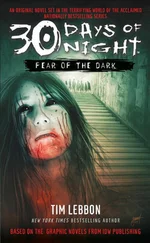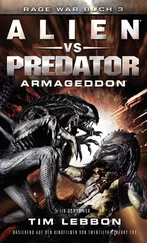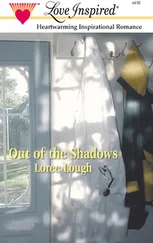“Is there another way to the elevator shaft?” Baxter asked.
“This is the direct route,” Hoop said. “The spine of this level. But all the mine sections have emergency exits at various points. We’ll go back, take the other fork, then cut back toward the elevator as soon as we find an exit.”
Ripley didn’t say what she knew they were all thinking. What if all the tunnels are like this? But she caught Baxter’s eye, and the truth passed between them—that he could never climb so many stairs. Maybe none of them could.
Not quickly enough.
They headed back, turned into the other fork of the corridor, then dropped down a series of large steps carved into the floor. Water flowed more freely along the gutters here, tinkling away at various points into hidden depths. Walls ran with it. It provided a background noise that was welcoming at first, but quickly became troubling. Behind the sound of flowing water, anything could approach them.
“I think this is the most recent mine working,” Hoop said. “They’ve been at this particular vein for two hundred days, maybe more.”
“So this is where they found them,” Sneddon said. “Somewhere along here.”
“Maybe,” Hoop said. “We don’t know the details. But we don’t have much choice.” He moved on, and the others followed.
There were several side corridors, smaller with lower ceilings, and as Hoop passed them by, Ripley guessed they were also mine workings. She had no idea how a mine functioned, but she’d been told that the quantities of trimonite found here were small compared to most ore mines. This wasn’t mining on an industrialized scale, but rather prospecting for hidden quantities of an almost priceless material. Digging through a million tons of rock to find half a ton of product.
She hoped that Hoop would know an emergency exit when he saw it.
Behind her, someone sneezed, uttering a quiet, “Oh!” afterward. Amanda had used to sneeze like that—a gentle sound, followed by an expression almost of surprise.
* * *
Amanda is eleven years old. Ripley knows because her daughter wears an oversized badge on her denim shirt, all purple and pink, hearts and flowers. I bought her that, she thinks, and although she can remember accessing the site, ordering the card and badge and the presents she knew Amanda wanted for her birthday—remembers the small smile of satisfaction when she confirmed “place order,” knowing that everything her daughter wanted was on the way—there is also a sense of dislocation, and the knowledge that this never happened.
Family and friends are there. And Alex, Ripley’s ex husband who left them when Amanda was three years old and never, ever came back. No calls, no contact, no sign at all that he was still alive; Ripley only knew that he was through a friend of a friend. Inexplicably, even Alex is there, smiling at Ripley across a table laden with birthday food and cake, with an “Isn’t it a pity we never made it” smile.
And Ripley, also inexplicably, smiles back.
There are other faces, other names, but they are clouded in memory, ambiguous in dreamscape. There’s singing and laughter, and Amanda smiles at her mother, that honest, deep smile of love and adoration that makes Ripley so glad to be alive.
The birthday girl’s chest explodes open. The “I am eleven” badge flicks from her shirt and goes flying, skimming across the table, striking a glass of orange juice and tipping it over. The denim shirt changes from light to dark. Blood splashes, staining everything, and when it strikes Ripley’s face and blurs her vision she wipes it away, staring at her juddering daughter—no longer beautiful, no longer pristine—and the thing clawing its way from her chest.
The monster is impossibly large. Larger than the innocent body it bursts from, larger than the people sitting around the table in a frozen tableau, sitting, waiting to be victims to the beast.
Ripley goes to scream.
* * *
It had been an instant, that was all, leaving a sense of dread which also slowly faded. But not entirely.
The person who sneezed was still drawing the postsneeze breath, and Hoop glanced back past Ripley, not even concerned enough to tell them to keep quiet. Ripley caught his eye and he paused, frowned, seeing something there. But she offered him a tight smile and he went on.
Ten minutes, maybe more. They stalked forward, Hoop taking the lead with the spray gun that might or might not work against the aliens, the others following close behind. These tunnels were less well formed, and Ripley supposed it was because this was one of the mining tunnels of level 9, not the spine passageway itself. But she was worried. If there had been alien evidence back in the main passageway, wasn’t there a good chance that they’d probed everywhere?
Even up?
The deeper they moved, the more signs of mining emerged. The tunnel widened in places, low ceilings shored with metal props as well as being melted hard. Walls showed evidence of mechanized excavation, and scattered along the tunnel were heavy, wheeled, low-profile trolleys that must have been used for disposal of the excavated material. They passed a spherical machine with several protruding arms tipped with blades and scoops.
Ripley wondered why they hadn’t been using more androids down here, and realized that she hadn’t actually asked. Maybe some of those who’d died in the dropships had been androids.
Of those survivors, it was only Sneddon who had proved her humanity to Ripley. And only because she had been challenged.
It didn’t matter. Her issues with Ash—and whatever Ash had become, once his AI had infiltrated the shuttle’s computer—should not jaundice her view of these people. They were all fighting to survive. Even Sneddon, with her obvious fascination for the deadly creatures, only wanted to get away.
Paranoid, much? Ripley thought. But at the same time, she wasn’t sure that paranoia was a bad thing right now.
Hoop had moved perhaps ten yards ahead. Suddenly he stopped.
“Here,” he said.
“Here?” Ripley asked.
“Emergency tunnel?” Lachance said from directly behind her.
She scanned the tunnel ahead, around Hoop and beyond, but though the lighting was adequate, there were still just shadows. Maybe one of them hid the entrance to a side-tunnel, doorway, or opening. But she thought not. All she could see was…
Something strange.
“No,” Hoop breathed. “Here. This is what they found. This is where it changed.” He sounded off. Awestruck, scared, almost bewitched. And for a painful, powerful moment, all Ripley wanted to do was to turn and run.
Back the way they had come, as fast as she could. Back to the staircase, then up, then to the Marion where she could hide herself away in the Narcissus, live the final moments of her life snuggled in the stasis pod with Jonesy and memories of better times.
But her memory already seemed to be playing tricks on her. She was starting to doubt that there had ever been better times.
She went forward until she stood next to Hoop, and the others followed.
“Through there,” he said. “Look. Can’t you feel it? The space, the… potential.”
Ripley could. She could see where he was pointing—a widened area of tunnel just ahead, and a narrow crevasse at the base of the wall on the left—and although there was only the faint glow of light from within the crack, the sense of some wide, expansive space beyond was dizzying.
“What is it?” Sneddon asked.
“It’s what they found,” Hoop said. “A nest. Those things sleeping, perhaps.”
“Maybe they’re still down there,” Kasyanov said. “We should go, we should—”
Читать дальше












